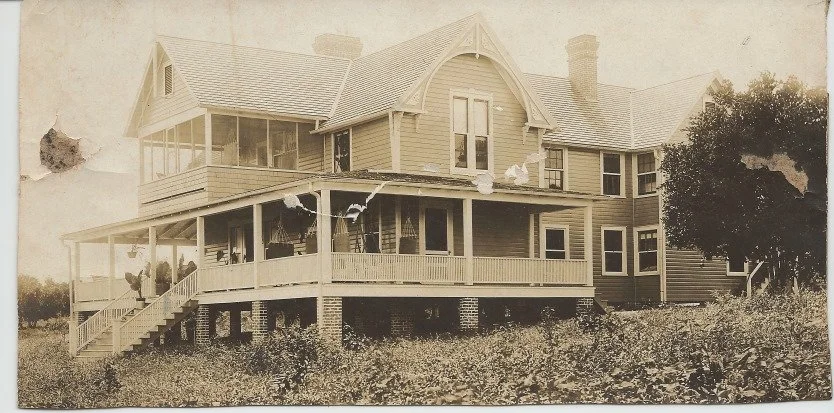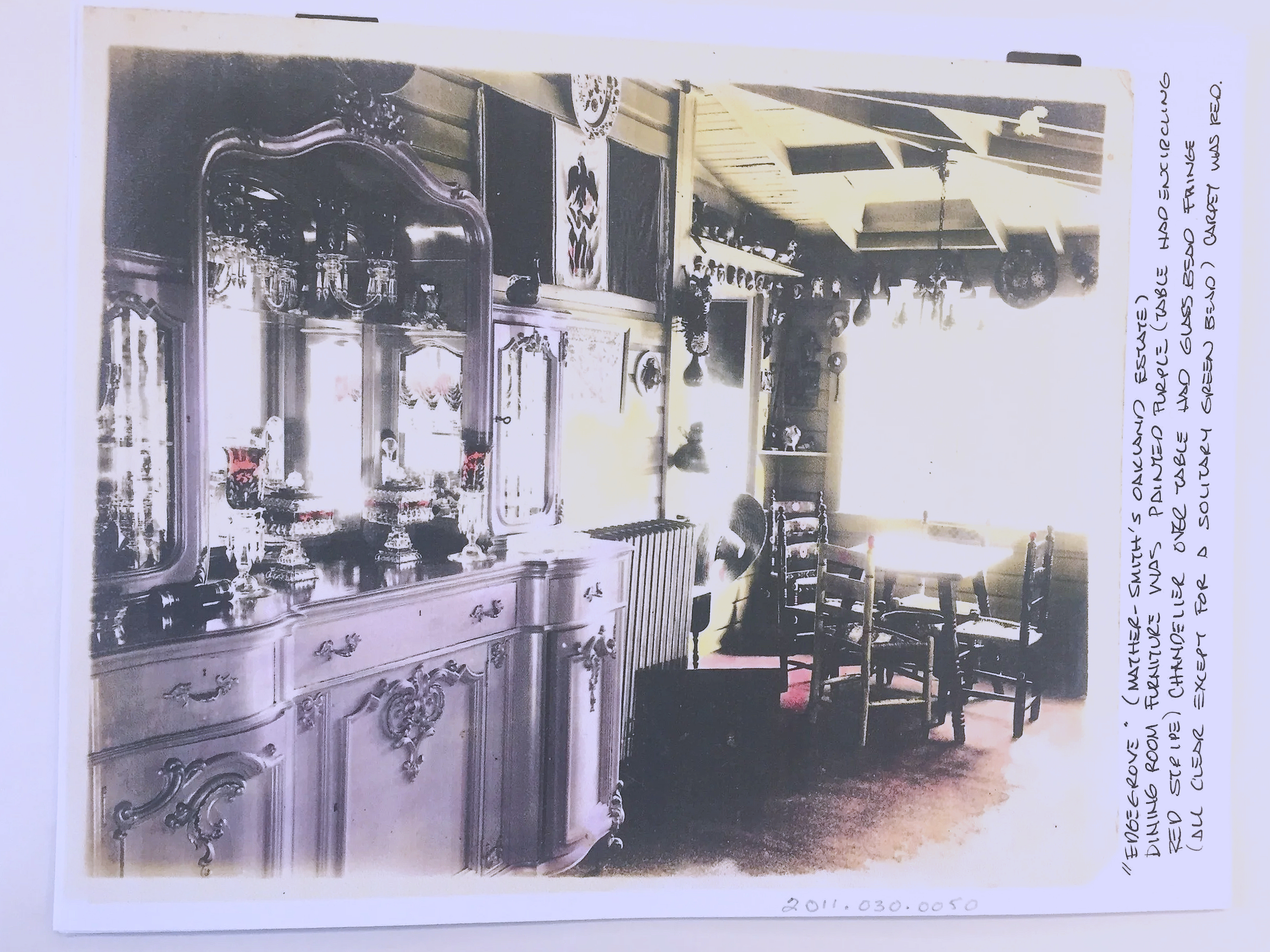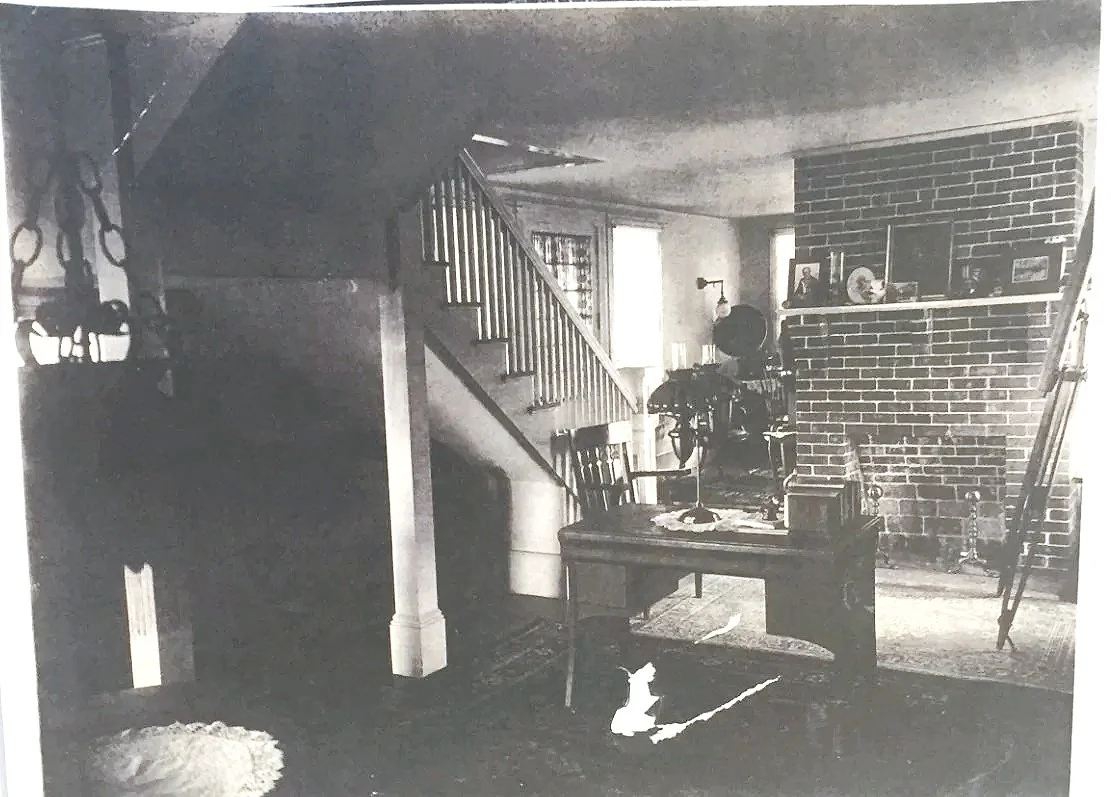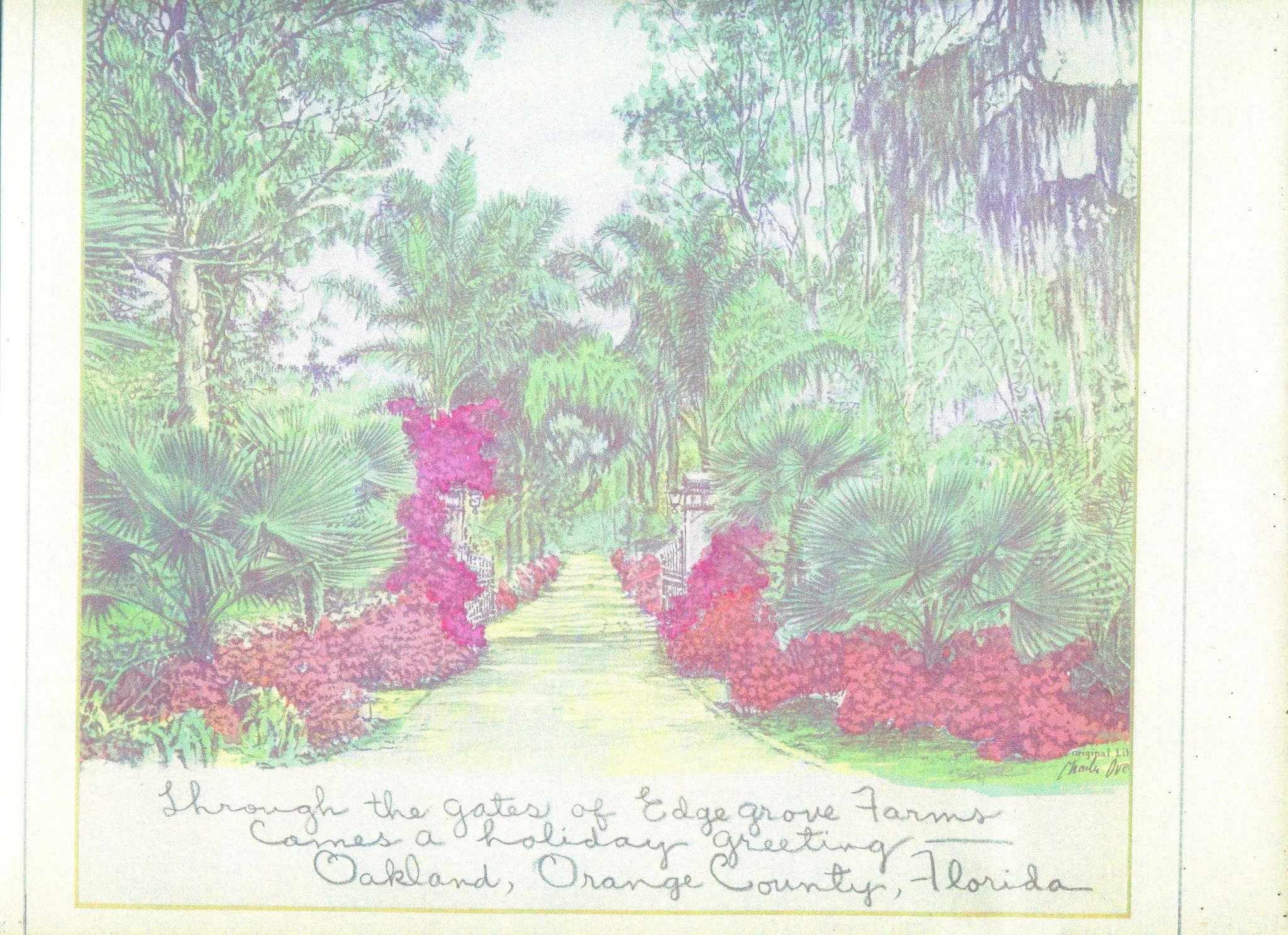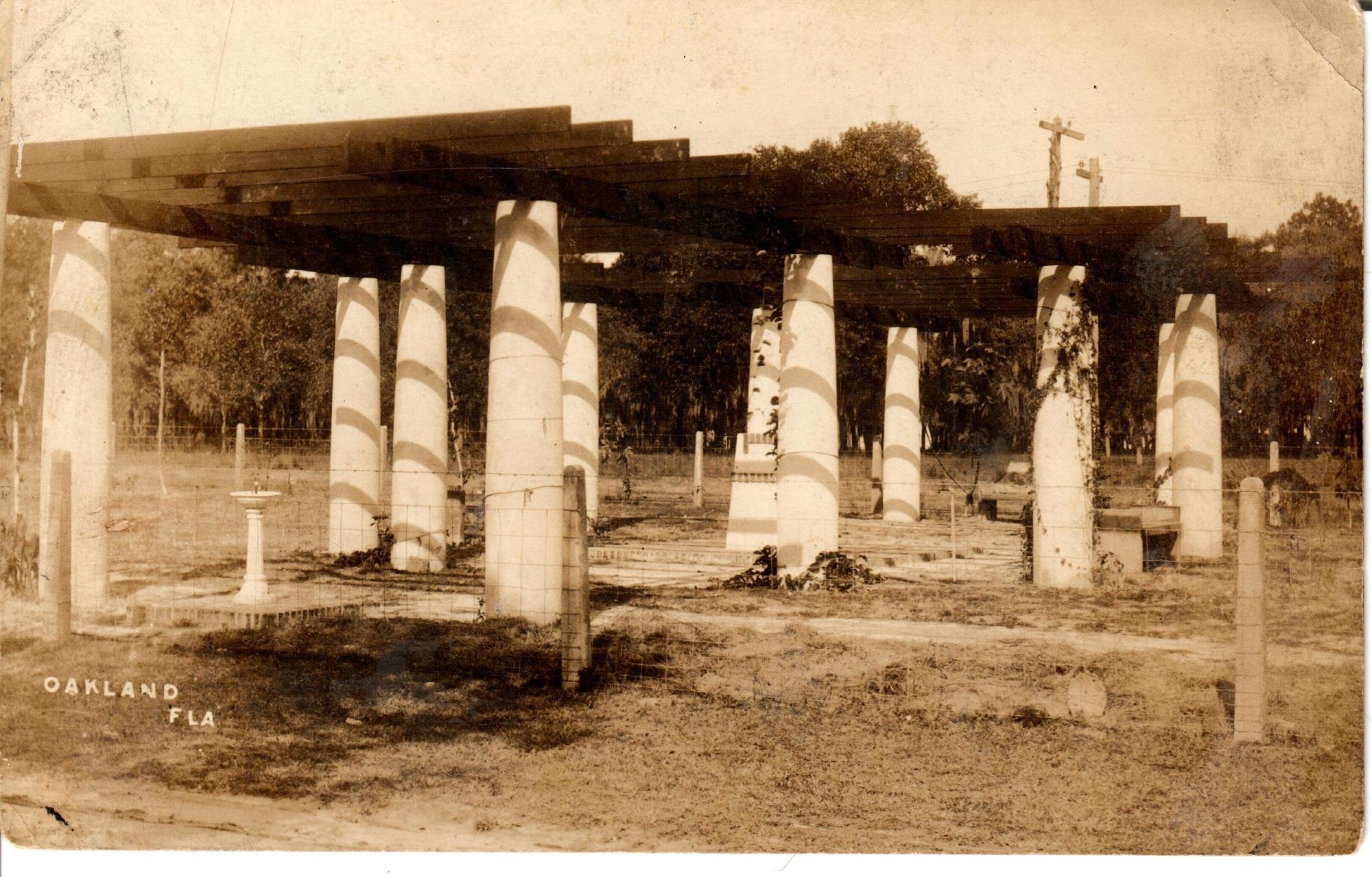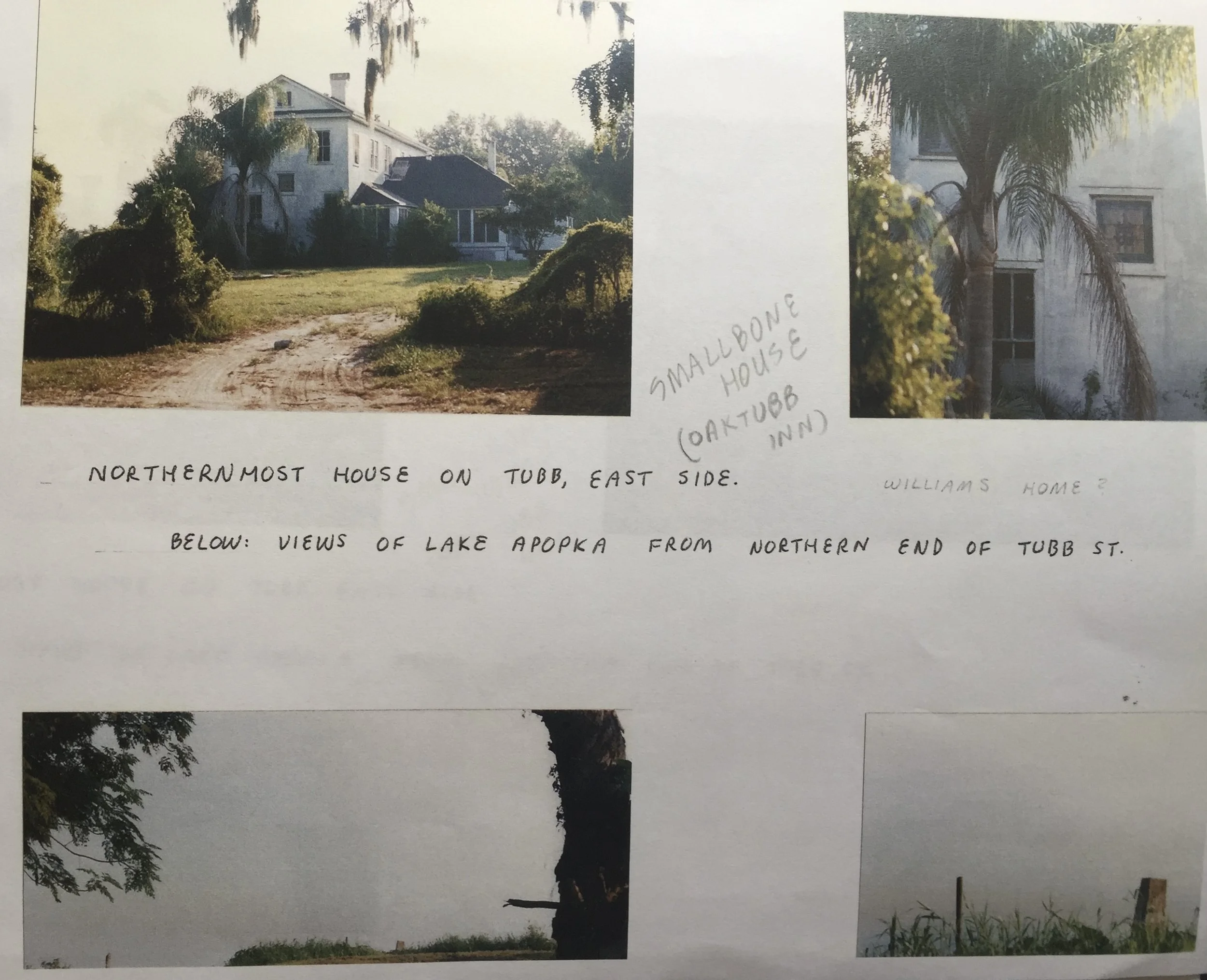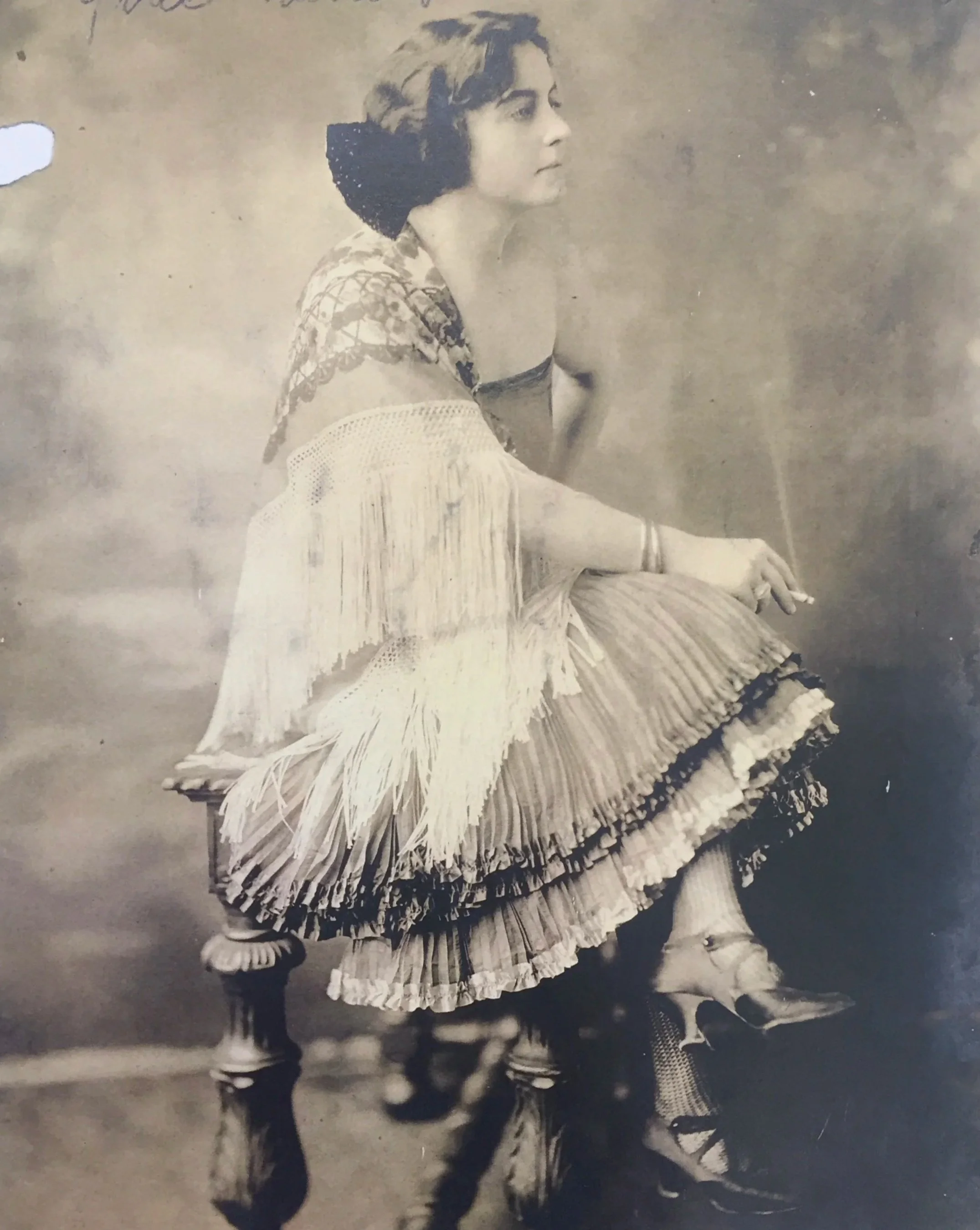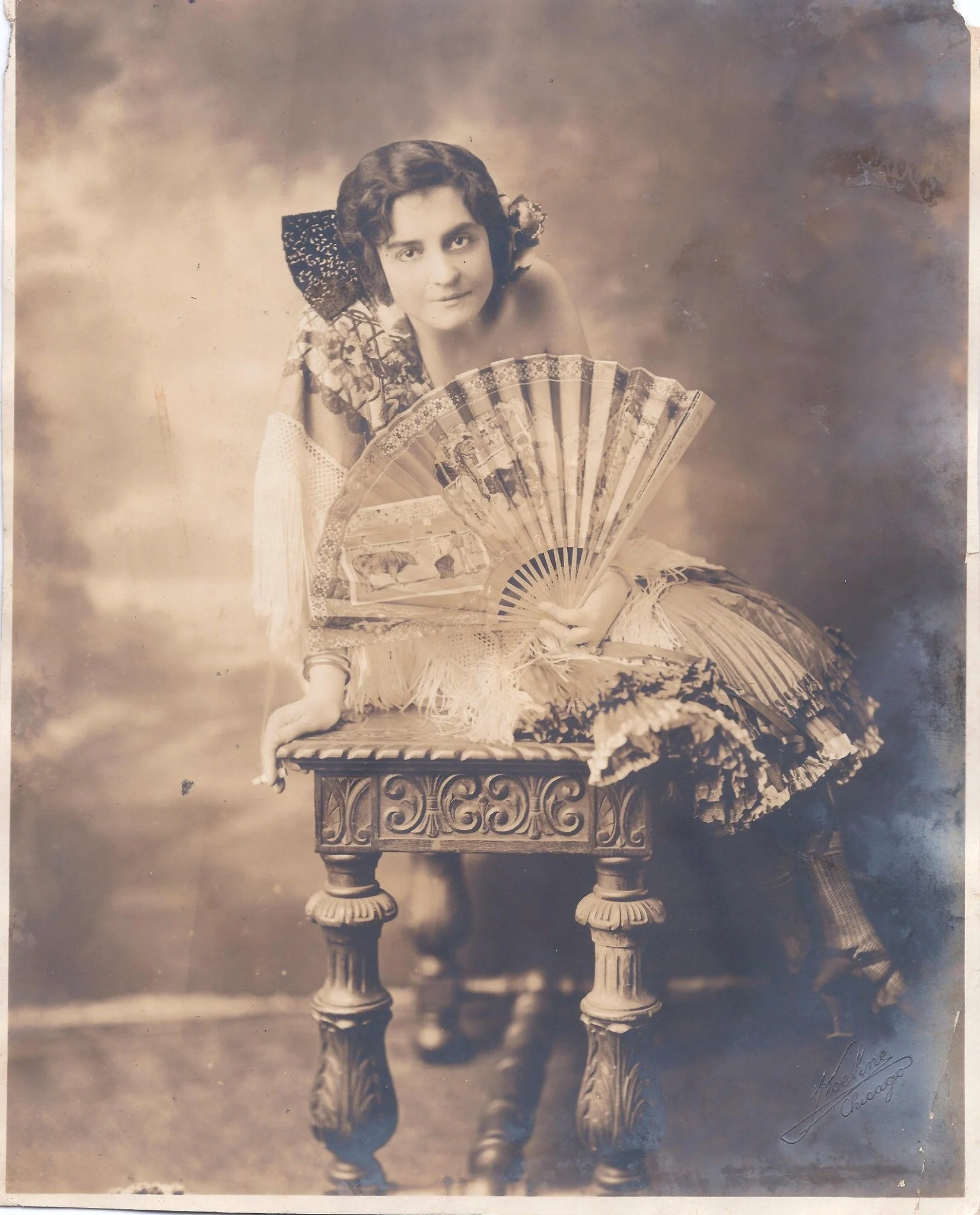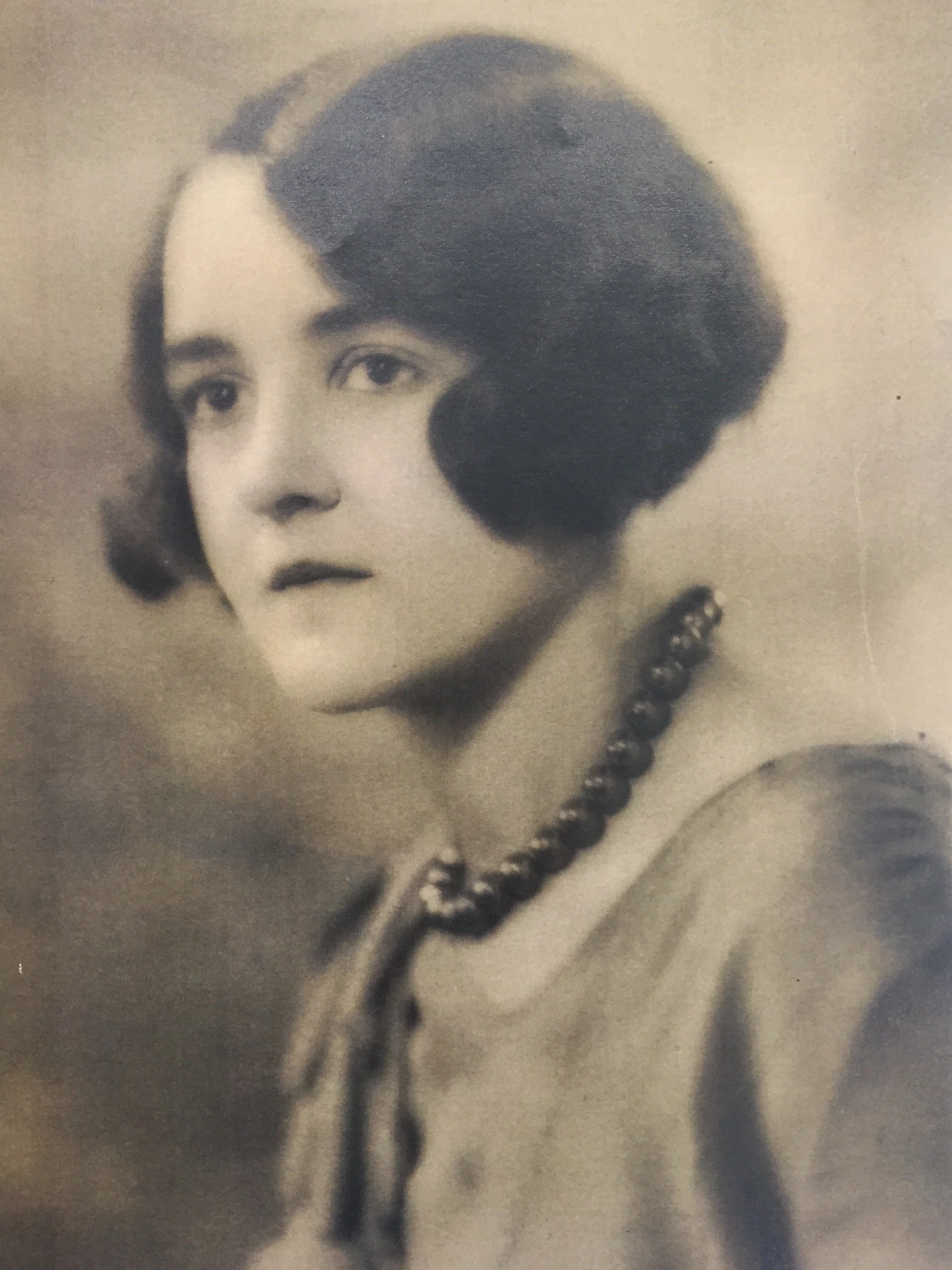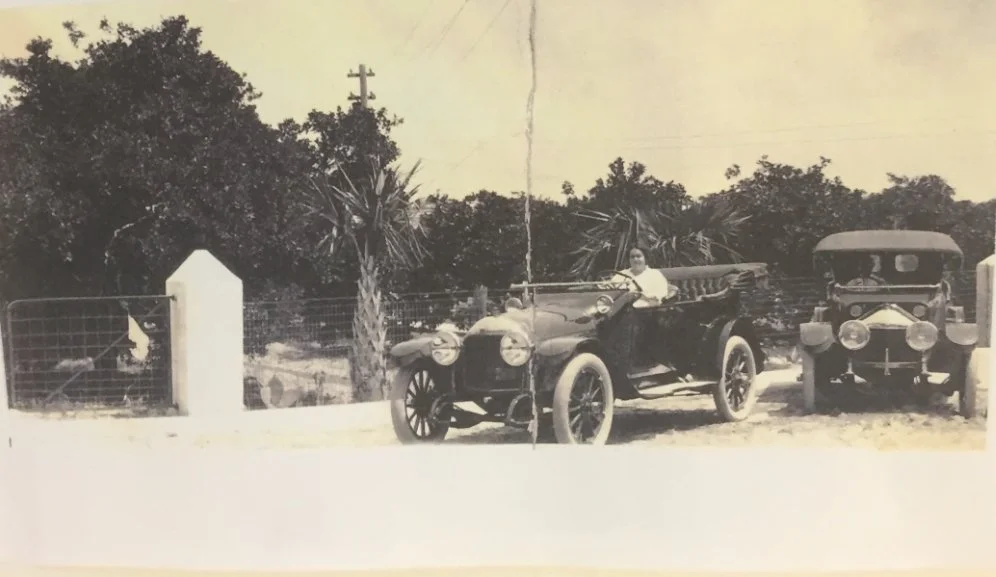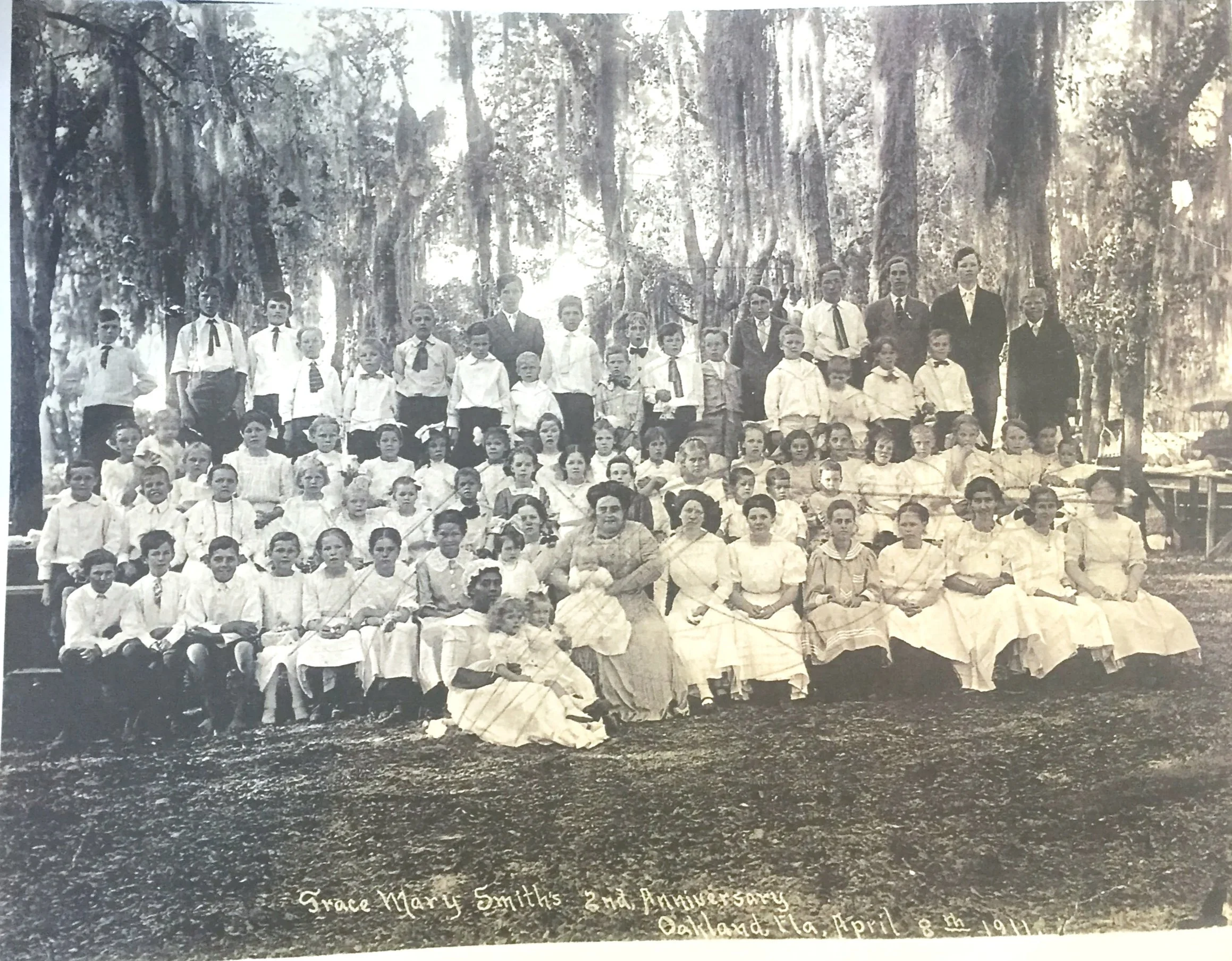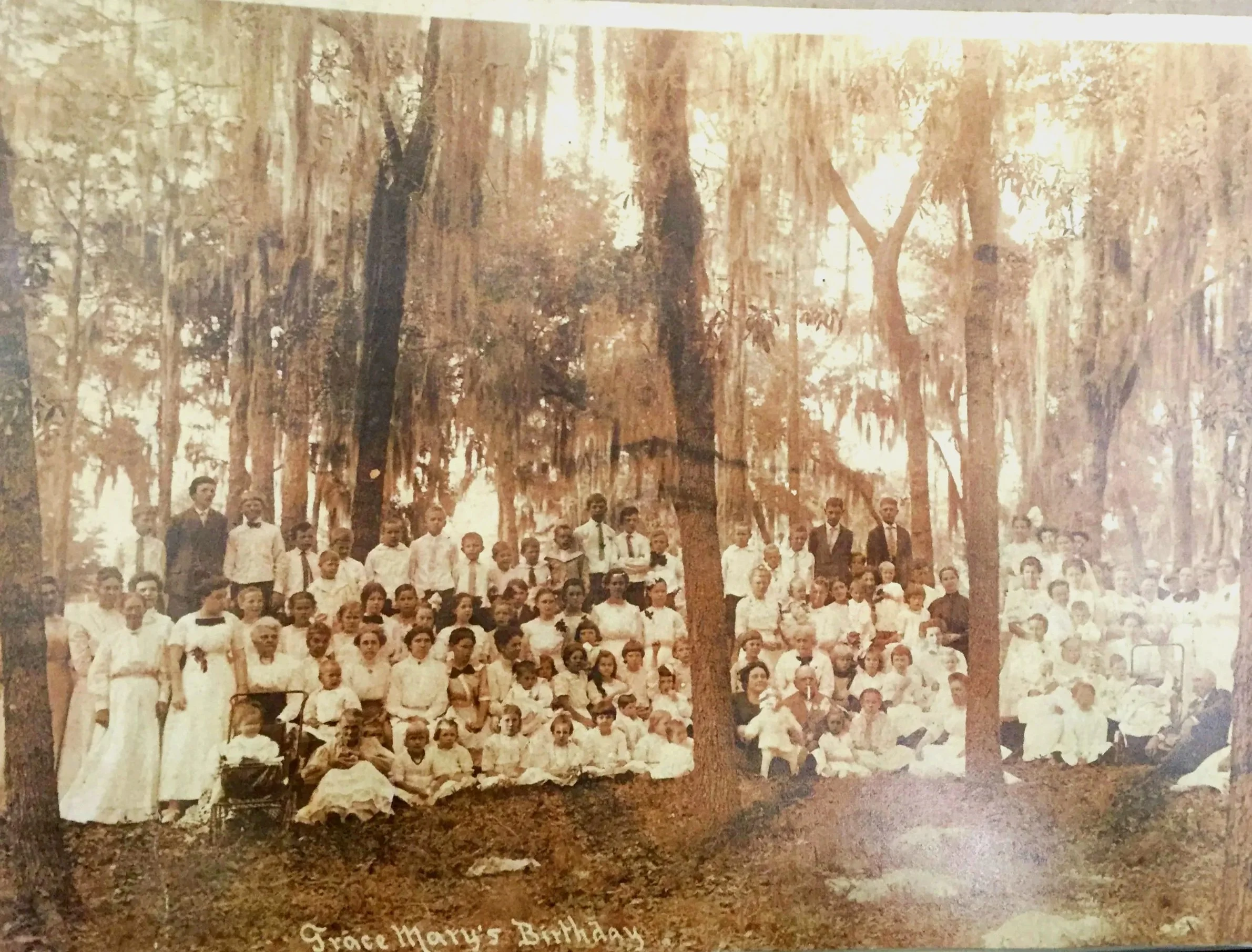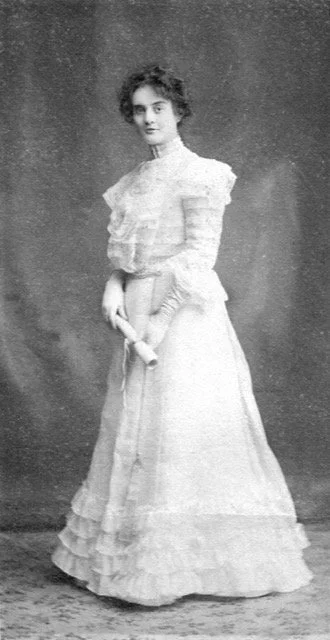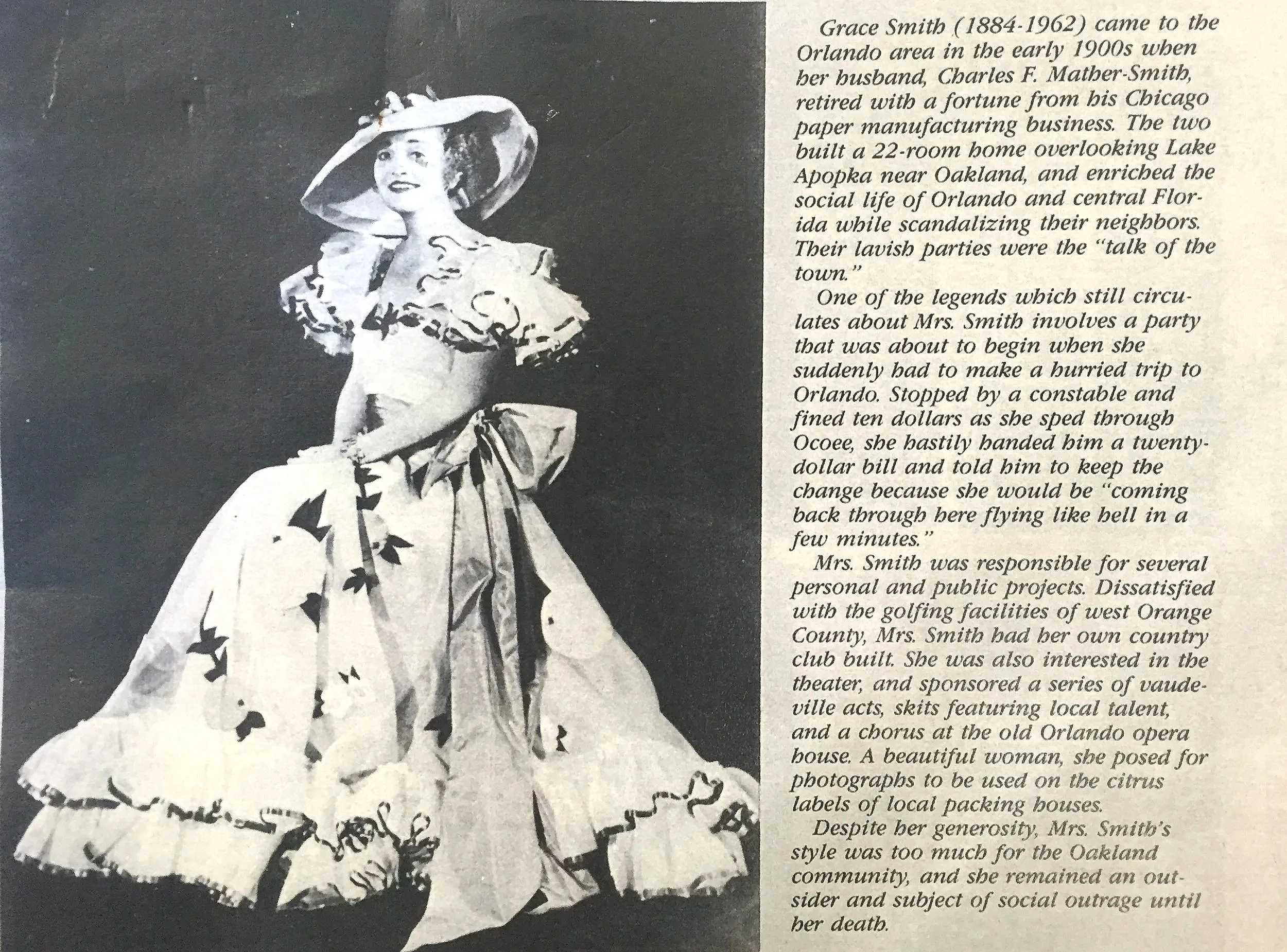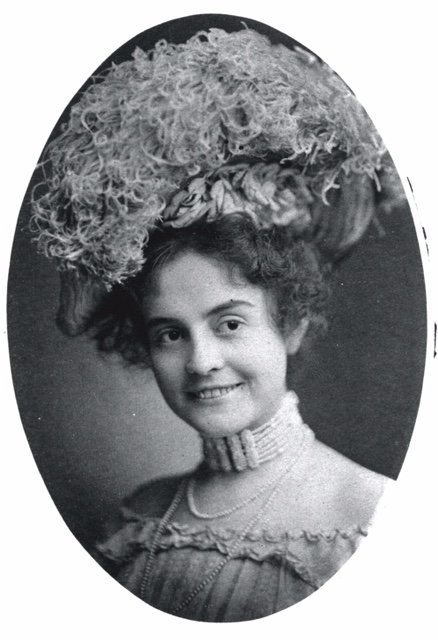
Grace Mather-Smith
The Woman Who Turned a House into a Legacy
Before the Oakland Manor House became a landmark, it was shaped by a woman who “hit staid little Oakland like a social bombshell.” Grace Mather-Smith arrived in the early 1900s with her new husband, Charles Frederic Mather-Smith. They came from Chicago society, bringing artistry, riches, confidence, and undeniable presence.
She was a trained actress and opera singer with natural magnetism. He was a successful paper-mill magnate, twenty years her senior, who adored her and supported every one of her creative impulses.
This is the house where their Oakland story began.
Before creating their celebrated twenty-two-room estate on Lake Apopka, Grace and Charles boarded here at the Oakland Manor House, the original Frank Williams home on North Tubb Street. They spent a year imagining what they would build, and during that time, Grace quickly became the talk of the town.
According to Frank Williams's son, she once taught the scandalous Turkey Trot to the local sewing circle in the OMHouse living room. The ladies were shocked, polite society rattled, and Grace enjoyed every moment. Formal expectations were never her limits. She was larger than life; unforgettable, spirited, and always unapologetically herself.
Eventually, Grace and Charles purchased this property and forty surrounding acres from the Williams family, transforming it into the estate known as Edgegrove Farms. It quickly became a social playground in Central Florida, complete with multiple themed dining rooms, including Hawaiian, Mexican, and even an all-purple inspired banquet room. The place was famous for its lavish parties, dances, buffets, card games, boating, and all sorts of revelry that no doubt stretched beyond what was ever written down.
According to historians and previous stewards, this original home became the heart of the compound. It was a guest house, caretaker’s home, and the operational center behind the grand lakefront residence.
A Local Legend
Mr. Smith was a quiet gentleman who adored his wife, and every year on her birthday, he gifted Grace a brand-new car. In the days of the Locomobile, the Pierce Arrow, and the Cadillac, she always had her pick.
One of her car adventures became a local legend. While preparing for an important party, Grace realized she was missing a key item and tore off toward Orlando, breaking every speed limit on the way. In Ocoee, the constable pulled her over and fined her ten dollars. Grace flipped him a twenty and shouted, “Keep it, I’ll be coming back through here like hell in a few minutes.”
Grace is remembered not only for her vivacity but also for her generosity and her devotion to community. Every year on her first daughter’s birthday, she hosted a celebration, inviting all the town’s children, complete with cake and jubilation. When the Orlando Country Club felt too exclusive, she and Charles helped establish the West Orange Country Club. She championed the creation of a public park in her name, Grace Park, with fountains and trellises. It has now been memorialized and embraced by the Oakland Healthy West Orange Arts and Heritage Center.
Grace entertained widely, uplifted countless lives through her philanthropy, and shaped early Oakland’s cultural landscape.
After Charles died in 1941, Grace remained on the property until the last year of her life. In true Grace fashion, she left this world on one of the most celebrated days of the year, New Year’s Day, 1962. Her larger estate home had long since been dismantled for lumber, but the original Williams house endured. It was then known as the Smallbone House after its caretakers, who were devoted to its upkeep, and the Mather-Smith family estate until they died in 1959. The home then slipped into years of vacancy and vandalism. Much later, it was lovingly revived as the Oak Tubb Inn in 1999, returning to its earliest purpose of housing others, just as it once sheltered Grace and Charles. Today, as the Oakland Manor House, it continues that quiet lineage of welcome, refuge, and hospitality.
OMHouse stands as the last remaining link to Grace’s era, the preserved heart of the original estate, and the opening chapter of one of Oakland’s most storied legacies.
Her portrait still watches over the home, carrying forward the vibrance she once filled it with.


